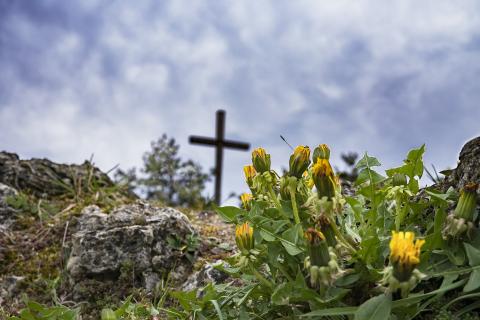
Fr. Dennis Moorman, MM, on mission in Brazil, reflects on the need to restore the bonds that tie together all creation.
It’s not good for us to be alone! During the times of isolation with the outbreak of the coronavirus pandemic, many of us felt this hard reality in the flesh. Families were restricted from visiting their loved ones in nursing care facilities. Those who were hospitalized and seriously ill with COVID-19 couldn’t receive visitors. Many people died in isolation from the support of their loved ones. Grandparents were deprived of the joy of being with their grandchildren. Health care workers isolated from their spouses and children so as not to risk infecting them with the dangerous virus that they were being exposed to at work on the front lines.
These trying times of pandemic have revealed to us loud and clear that we are wired for community. We need one another in order to live fully. We are relational creatures and when our relationality is disrupted, we suffer. The issue of divorce of which Jesus speaks about in today’s Gospel is but one example of the suffering brought about in broken relationships which is so common in our world today. The tendency towards an increasingly individualistic society in which we live is another form of this fragmentation resulting from the breakdown of community and societal relations.
This isolation and disconnection that we experience is in many ways a symptom of a deeper disconnection of humanity with the natural world, which is at the root of the brokenness of the times in which we are living. The biblical notion of sin can be understood as a break in relationship with God, with self, with one another, and with the natural world.
Jesus’ response to the issue of divorce was to respond with the equalizing value of justice. His response to the question of the Pharisees revealed that healthy relationships are a reciprocal dynamic which must be based on the inherent dignity and equal value of all involved. Without these values, the relationship degrades into exploitation of the other. Jesus made it clear that it wasn’t alright for a man to dismiss his wife at his own whim, but both man and woman have equal responsibilities and value in the relationship. Jesus also points to a deeper reality of the oneness of man and woman, which points to the oneness of all creation with the Divine Creator when he says “what God has joined, no human being must separate.”
In Colossians 1:20, the inspired author says, “It pleased God, to make absolute fullness reside in him and, by means of him, to reconcile everything in his person, both on earth and in the heavens, making peace through the blood of his cross.” Jesus’ mission was about restoring the fullness and oneness of all creation. Martin Luther King, Jr., a Christian minister, and Emma Lazarus, a Jewish poet, both American social activists, often asserted that “none of us are free until all of us are free.” This phrase also rings true in how we relate with the natural world in that as long as we continue the disconnection with the suffering of creation, we will also continue to suffer.
Just as Jesus embraced the oneness and fullness of God’s creation through his life, ministry, death, and resurrection, when we come to a place of encounter with the natural world within our own bodies and make the connection of our own suffering with that of creation, then we will be on the way to embracing the reconciliation of that absolute fullness that the mission of Jesus’ blood being poured out on the cross was all about. Perhaps it is then that we will begin to recognize the oneness of all creation and the spark of divine life that unites us all, and then we will help bring about that reality of divine justice and equilibrium that Jesus gave his life to proclaim as reality.
